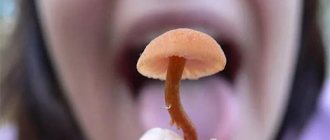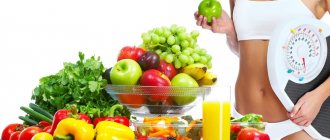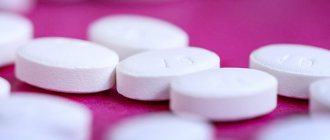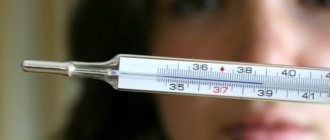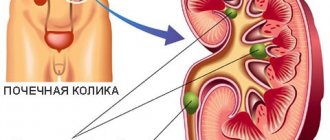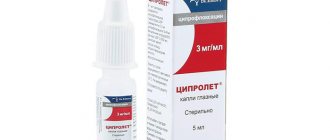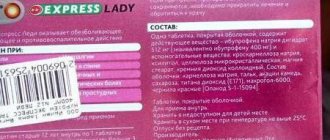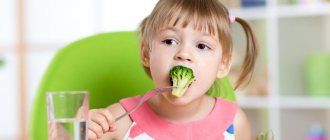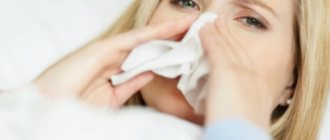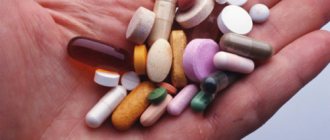As a rule, a person suffers from food poisoning quite hard and this is due, first of all, to the fact that unpleasant symptoms are observed in this condition. Despite the fact that in most cases the patient experiences nausea and weakness, the body still needs nourishment, which means it is necessary to eat food, albeit carefully. In the first hours of poisoning, it is recommended to refuse food and focus on water, gradually switching to a gentle diet
.
Food poisoning is considered one of the oldest diseases on earth. This is not surprising, since even a few decades ago the conditions for storing food were very different from modern ones. .
- 2 Diet of the patient after poisoning
- 3 Recommendations and recipes
General Diet Recommendations
The diet for food poisoning in adults is aimed at:
- Restoring water-salt balance in the body;
- Relieving inflammation of the gastric and intestinal mucosa;
- Acceleration of healing of mucous membranes;
- Elimination of signs and consequences of dehydration;
- Satisfying the body's nutritional needs.
To make it easier for an adult body to cope with the pathological process and its consequences, it is necessary to adhere to several important dietary recommendations :
- Compliance with drinking regime. In case of poisoning, the body loses a large amount of fluid through vomiting and diarrhea, which leads to the development of dehydration. If it is not eliminated in time, serious complications may arise. You should drink 2 liters or more of liquid: water and saline solutions (Oralit, Regidron). You should drink in small sips, drinking no more than 50 milliliters at a time, so as not to provoke a new attack of vomiting;
- Fractional meals . Food should be consumed in small quantities, but often. The number of meals is at least 6 times a day. In the first days, fasting is recommended; on days 3–4, the portion should be 100–150 grams. Gradually the serving volume increases to the usual;
- The length of time an adult should follow the diet depends on the severity of the poisoning . At a minimum, nutritional therapy should be consumed for 1 week;
- Food should be mechanically and thermally gentle . During the first days, food should be pureed and slimy. The temperature of food and drinks should be comfortable (from 20 to 45 degrees), otherwise there is a high probability of resumption of vomiting;
- Avoid the consumption of foods and drinks that irritate the stomach and intestines (spicy, salty, fried, fatty, sweet, canned, smoked and semi-finished products). Under no circumstances should you drink alcoholic beverages;
- Limit salt intake , as it has an irritating effect on the gastrointestinal tract.
When following a diet, adults need to carefully monitor the quality of the foods they eat .
The diet should be expanded gradually, after consultation with your doctor. However, some restrictions remain relevant for a long time.
Pasta and intoxication
It is also forbidden to consume pasta during the rehabilitation of a patient, when the activity of digestive enzymes in the intestines is noticeably reduced.
With the correct technology for producing pasta and following the cooking technology, it is impossible to get poisoned by pasta. However, not all manufacturers of this flour product adhere to the required technology. Some unscrupulous sellers sell expired products that contain a huge amount of toxic impurities. In this case, pathogenic organisms enter the stomach and intestines and cause their disease.
What can you eat and drink if you are poisoned?
It should be noted that during the first day of poisoning, you must completely refuse food. During this period, the patient has no appetite, which is a protective mechanism of the digestive system. The first day a fast is prescribed, you can only drink the following drinks:
- Pure drinking or mineral water without gas;
- Saline solutions;
- Weak tea.
As soon as the doctor allows you to eat food, you must remember and take into account the list of permitted foods, dishes and drinks:
- Kissel;
- Compote;
- Weak tea;
- Rose hip decoction;
- Rice water;
- Rusks, just not fried. Bread must be dried in the open air. You can also eat yesterday's bread and dry biscuits (but not in the first days of the disease);
- Slimy soups with low-fat meat broth . Moreover, the broth should be secondary. That is, after boiling water with meat, pour out the first water and fill the pan with clean water. Food is cooked using this broth. Subsequently, you can add cereals;
- Porridge on the water . Preference is given to semolina, buckwheat, oatmeal and rice. Porridges should be homogeneous and pureed;
- Steamed cutlets and meatballs made from tender meats (chicken breast, turkey, beef). The minced meat must be twisted twice to make the cutlets tender. Meat can be eaten no earlier than the fifth day of illness;
- Omelettes, steamed and hard-boiled eggs.
Similar articles
What can and cannot be eaten by a child if he is poisoned? What can and should he eat and drink if he has food poisoning? Can I drink kefir if he is poisoned?
The consumption of foods rich in fats and carbohydrates is limited, but protein foods should be in sufficient quantities.
What is strictly forbidden
In case of poisoning, the first time you should cook soup only with the addition of vegetables. You should not eat meat or mushroom broths. All this can be administered on days 3-5, and not earlier. Ice cream is not recommended for poisoning, since it is a dairy product, and also cold . Needless to say, the answer to the question of whether you can eat pasta if you are poisoned will be a clear denial. This is quite heavy food.
For a diet after poisoning, choose light, low-calorie foods. For those who are interested in whether it is possible to eat eggs in case of poisoning, for example, it will be useful to know that only an omelet is acceptable, since fried eggs will only become an aggravating factor! Also prohibited:
- sweets;
- kebab, sausage, cheese;
- raw vegetables;
- fresh white bread;
- caviar, fish;
- dairy products.
Proper nutrition in case of poisoning allows you to quickly and easily restore the body. An incorrect diet aggravates the situation and can lead to quite serious health problems in the future. Some foods cause fermentation in the intestines, pain or cramps in the stomach.
The diet for poisoning in adults does not allow any food on the first day, but for children, the consumption of unsalted crackers or dry bread is sometimes allowed. Buckwheat in case of poisoning will be the most correct option, and for those who are interested in what fruits can be eaten in case of poisoning, you should understand that you can eat almost all fruits, but most can only be boiled and baked. A good option would be oatmeal for poisoning, cooked in water and with the addition of boiled fruit.
Poisoning in a nursing mother
A nursing mother should not give up breastfeeding if this is truly ordinary poisoning, since this will not be dangerous for the child.
However, it is worth consulting with clinic specialists, because the symptoms of poisoning are very similar to the symptoms of an intestinal infection, which can be transmitted to a child, and this can be dangerous!
However, if there is any suspicion of an infection, or there is some discomfort for the child, then the baby may well eat artificial formula for some time. Particular attention should be paid to this issue if it is necessary to take active drugs to treat the mother. To maintain lactation, it is necessary to constantly express milk, but such milk should no longer be given to the baby if the mother uses potent medications .
How to treat yourself at home
It is possible to take some treatment steps at home other than maintaining a proper diet. This involves a sequence of steps:
- cleansing the body;
- reduction of pain;
- therapy to maintain the patient's condition and recovery.
For detoxification, gastric lavage is first done, and then certain medications can be used, as prescribed by the doctor. Drugs such as Smecta or activated carbon can be used at home, and there will be no particular problems with these medications. But treatment with antibiotics should only be carried out under the strict supervision of doctors, since these are potent drugs that can harm a person and have a negative effect on the body, especially if we are talking about a nursing mother!
Unfortunately, food poisoning is quite common, even if you follow basic hygiene rules, wash your hands before eating and try to cook only from proven ingredients. However, if this trouble does happen to you, you should immediately consult a doctor, and also take into account what you can eat if you are poisoned.
First day after poisoning
The most important thing is to try to refrain from eating food as such on the first day. But with this weakened body, the water-salt balance needs to be restored. The only thing allowed on the first day is drinking plenty of water, preferably plain still water, strong black tea without sugar. If the intoxication is not too severe, then you can easily afford light unsalted chicken broth, cooked with lean chicken soup. It is advisable to drink a couple of cups of this broth a day.
Second day after poisoning
On the second day, you should start eating gradually to restore the body's strength. However, when thinking about what you should eat if you are poisoned, you should not expect that any food will be allowed to you today. The second day's diet should be based on light, split meals that do not irritate the gastrointestinal tract. In addition, if you are interested in a professional answer to the question of what to eat if you are poisoned on the second day, then any doctor will warn you against consuming foods from the following list:
- confectionery, bread;
- any meat and fish, sausage, smoked meats, canned food, mushrooms;
- milk;
- eggs in any form;
- whole cereals and pasta, as well as pearl barley and millet porridge;
- raw fruits and berries, jam, chocolate and other sweets.
Do not despair, because you will have to say goodbye to the products on this list only in the first days after departure. If we talk about what you can eat if you are poisoned on the second day, then among the permitted foods you can highlight fruit and berry jelly, rice porridge, dry cookies and crackers. Meals should be fractional and portions should be small. All food for the day should be divided into 5-6 meals.
Diet for the next days
In addition, you need to pay attention to what you can eat if you are poisoned in the following days. The main rule of nutrition in this case is to gradually introduce other foods into the diet. For example, it is advisable to start eating meat and fish dishes no earlier than the fourth or fifth day after poisoning, while you should avoid fried and smoked foods for now. It is advisable to abstain from alcohol for a couple of weeks to avoid recurrence of gastrointestinal irritation. You should understand: the answer to the question “what can you eat if you are poisoned” may not interest you due to lack of appetite even on the third day. This is not scary, the most important thing is to avoid dehydration and force yourself to drink as much clean, still water as possible.
Sample menu for poisoning
In the first days of the disease, the menu is not particularly varied. In this case, from days 2 to 4 it is recommended to consume :
- Kiseli;
- Rice water;
- Rusks;
- Dried fruits compote;
- Liquid rice porridge on water, pureed.
Starting from day 5, and for the next 7 days, it is recommended to follow the following menu:
| Eating | Allowed dishes |
| 1st option | |
| Breakfast | · Kissel; · Rice porridge on water, pureed; |
| Snacks (first and second) | · Crackers with compote; · Or rice water. |
| Dinner | · Slimy soup with oatmeal in recycled meat broth; · Rusk or yesterday's bread; · Kissel. |
| Dinner | · Vegetable broth; · Steamed chicken breast cutlet. |
| 2nd option | |
| Breakfast | · Liquid semolina porridge, cooked in water with the addition of a small amount of sugar; · Compote of their dried fruits. |
| Snacks (first and second) | · Vegetable broth; · Galette cookies. |
| Dinner | · Boiled turkey meatballs; · Boiled buckwheat porridge; · Kissel. |
| Dinner | · Vegetable puree soup; · Rusk. |
What can you eat if you have food poisoning in adults? Starting from days 8–10, the diet expands somewhat and the menu looks a little different; consider 2 options:
| Eating | Allowed dishes |
| 1st option | |
| Breakfast | · Steam omelet from quail or chicken eggs; · Tea with milk; · Galette cookies. |
| Snacks (first and second) | · Compote with crackers; · Cottage cheese casserole. |
| Dinner | · Rice soup with low-fat broth; · Steamed minced beef cutlets; · Yesterday's bread; · Kissel. |
| Dinner | · Baked vegetables; · Boiled white fish; · Compote. |
| 2nd option | |
| Breakfast | · Cottage cheese casserole; · Kissel; · Rusk. |
| Snacks (first and second) | · Hard-boiled egg; · Cookies with tea. |
| Dinner | · Chicken bouillon; · Stewed turkey meatballs; · Mashed potatoes; · Tea with sugar. |
| Dinner | · Rice porridge on water; · Kissel; · Rusk. |
After 2 - 4 weeks from the moment of poisoning, depending on the severity of the pathological process, you can return to your previous diet.
Signs of pasta poisoning
The first signs of poisoning with this product are sometimes observed within half an hour after eating. These include:
- Severe dizziness.
- Feeling of heaviness in the stomach.
- Severe weakness and decreased performance.
- Feeling overwhelmed.
- Chills.
- Nausea of varying intensity.
- Diarrhea (sometimes undigested food remains are found in frequent liquid stools).
- Spasmodic pain in the abdomen in the epigastric region.
- Increased body temperature.
- Producing a lot of sweat.
- Dry skin and mucous membranes resulting from progressive dehydration.
Tables according to Pevzner
In dietetics, there is a nutrition system that includes 15 dietary tables. This system was developed by the founder of Russian dietetics M.I. Pevzner.
Poisoning is a pathological process in which the body as a whole suffers. Several dietary tables according to Pevzner are suitable for its restoration.
Dietary table No. 0
This diet for poisoning in adults is recommended for poisoning in the first few days (2 – 3). Such food for food poisoning is not prescribed for a long time, since it is low in calories and does not satisfy all the needs of the body. However, on the first day of poisoning, the body needs rest.
The menu uses:
- You will be interested...
What can a child eat if he is poisoned? Slimy soups; - Kiseli;
- Compotes;
- Rice water;
- Chicken broth (secondary).
Dietary table No. 1
In dietetics, there are several options for this diet. However, in case of poisoning, table No. 1a is prescribed. In this case, nutrition in adults is gentle. It is balanced in protein, fat and carbohydrate content. This type of nutrition prevents irritation of the stomach and intestinal mucosa.
The number of meals for an adult is up to 6 times a day. The diet is prescribed from the 4th to 5th day of illness. The menu uses :
- Rusks and dried (yesterday's) bread, biscuits;
- Cereals : rice, oatmeal, buckwheat, semolina. Cereals are used to prepare porridges in water, slimy soups and boiled (ground) side dishes;
- Low-fat meat and vegetable broth;
- Soups , including puree soup, cooked in meat and vegetable broth with vegetables and cereals;
- Lean meat (rabbit, turkey, beef, chicken);
- Compote, jelly.
Dietary table No. 5
It is prescribed when the patient has problems with the liver and gall bladder due to poisoning. In case of poisoning in adults, as well as in children, meals should be frequent, fractional (small portions).
The menu includes:
- Fish and meat of low-fat varieties;
- Cereal and vegetable soups;
- Cereals and porridges made from them;
- Low fat dairy products;
- Stewed, baked and boiled vegetables.
For drinks, it is better to choose clean water, compotes, weak tea and jelly.
Symptoms of severe poisoning
Sometimes poisoning from low-quality food products occurs very quickly. If fulminant poisoning occurs, the patient needs urgent hospitalization. You should immediately consult a doctor if:
- sudden disturbance of consciousness in the form of stupor, stupor or coma;
- decreased blood pressure;
- the appearance of seizures;
- intense vomiting or nausea;
- the presence of neurological complications;
- the appearance of symptoms of meningitis
- a sharp increase in body temperature of more than 39 degrees, which is not reduced by medications;
- very severe headache;
- a sharp disturbance in the coherence of body movements;
- pronounced violation of spatio-temporal orientation.
With such poisoning, the liver and kidneys can suffer the most. These organs cannot cope with the entry of toxins into the blood, which is why they accumulate in cells and tissues. This threatens the development of toxic shock.
Nutrition after poisoning to restore the body
To restore the body, a balanced diet rich in vitamins and minerals is required. However, even at this time the body must be spared, especially the gastrointestinal tract.
During the recovery period after poisoning, nutrition should be based on the following principles:
- Drink enough liquid, from 1.5 to 2 liters. The following drinks are prohibited: packaged juices, carbonated water, coffee, strong tea, and alcohol;
- Portions should not be large . You should eat no more than 150–200 grams at a time;
- Food should be easy to digest and assimilate. It is recommended to consume pureed foods, crushed foods, and well-cooked cereals;
- Heat treatment . You still cannot eat fried foods; preference is given to boiled and steamed foods.
Avoid foods that are difficult for the gastrointestinal tract from the diet.:
- Legumes;
- White cabbage;
- Whole milk;
- Fatty meat and fish;
- Cakes and pastries;
- Baking;
- Canned food;
- Salty, spicy and smoked foods;
- Spices and various sauces.
During the recovery phase, baked fruits (apples and pears) can be introduced .
Gradually, adults can switch to fresh fruits. Returning to a normal diet after poisoning is gradual and requires time and patience.
Treatment options
Before prescribing therapy, it is very important to find out about the nature of the food consumed and the timing of meals. It is necessary to measure blood pressure, body temperature and pulse rate. The patient must be constantly monitored, measuring blood pressure and body temperature.
In a child, this procedure should be performed extremely carefully.
In case of intoxication, drugs that have a sorbent effect are used. The most effective of them:
Activated carbon should be consumed in the ratio of 1 tablet per 10 kg of patient weight. Other drugs have individual dosages.
To replenish fluid reserves in the body, the following medications are recommended:
To prepare the solution, dissolve a sachet of the drug in a liter of water. You need to drink it in small portions throughout the day. To treat dehydration, it is recommended to give tea to the patient.
Video: what can you eat if you have food poisoning?
Is it possible to eat fermented milk products?
The diet after poisoning should be systematic and consistent. Natural fermented milk products can improve the condition of the intestinal microflora, slow down the development of pathogenic bacteria, and restore metabolism. speed up peristalsis processes. To use the products you must follow the following rules:
- Kefir. The product qualitatively regulates digestion and calms the human nervous system. The body receives the necessary doses of protein. To maximize the effect, drink 250 ml per day of a low-fat product on an empty stomach in the morning for 2 weeks. A natural prebiotic will give better results over time than a chemical medicine. Contraindicated for young children, with chronic diseases of the gastrointestinal tract with a high pH level of the stomach.
- Milk. Drinking milk on the first day after intoxication is acceptable if a person has a mild form of the disorder and slight heartburn. Selenium and vitamins A and B help destroy pathogens.
- Cottage cheese, fermented baked milk. The product is rich in calcium ions and proteins, which are 90% absorbed by the adult body. It is not recommended to consume cottage cheese on the 1st day after poisoning (preferably on the 6th day).
- Milk serum. Able to remove heavy metals, various toxins, and waste from the body. Nutritionists recommend consuming whey after complete recovery (preparing okroshka, casseroles).
Food poisoning: prohibited foods
- legumes in any form (except canned green peas);
- white cabbage and dishes made from it;
- fatty foods, including pork, lamb, fatty fish, poultry, canned food in oil;
- fried, smoked, salted, pickled, hot seasonings and spices;
- raw vegetables and fruits, especially prunes, carrots, apricots, raisins, grapes;
- for diarrhea - whole milk.
During recovery, the diet can be gradually expanded by introducing the usual amount of fats and carbohydrates into the diet.
Author: Natalya Dolgopolova, general practitioner
The material used photographs belonging to shutterstock.com
